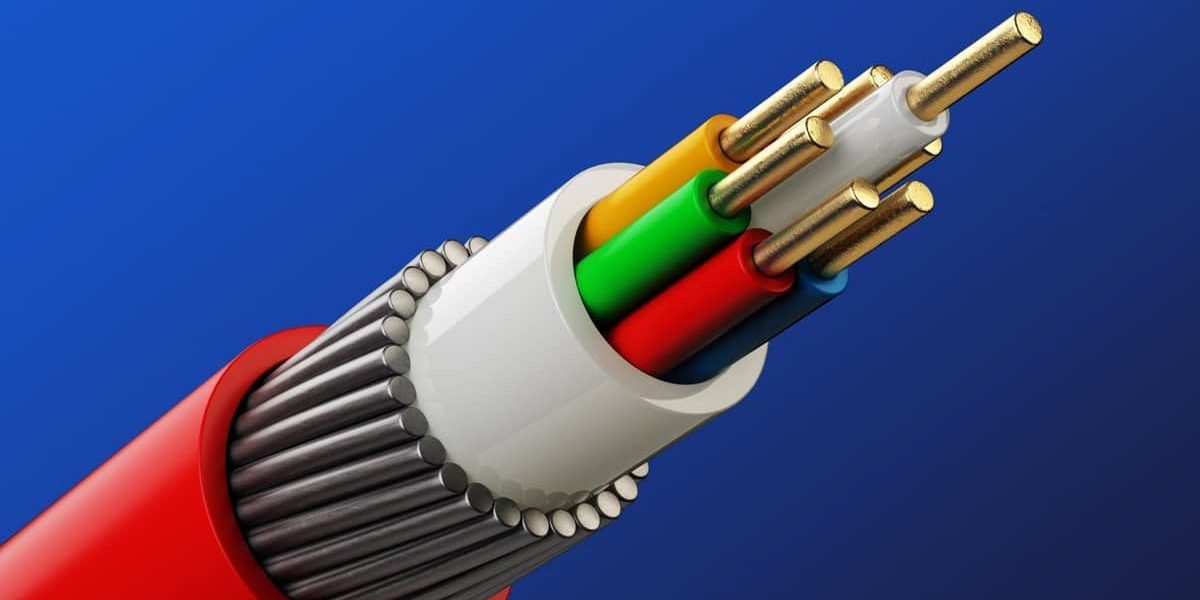TPU Materials in Cable
Thermoplastic Polyurethane (TPU) is an advanced material used in various industries, including cable manufacturing. TPU’s flexibility, durability, and resilience make it an ideal choice for cable insulation and sheathing. In this article, we explore TPU’s properties and its crucial role in cable applications.
TPU materials enhance the performance and durability of cables. They provide flexibility, wear resistance, and long-term performance across a wide range of cable applications.
TPU is used extensively in cable construction due to its unique combination of flexibility, durability, and high resistance to various factors such as temperature, abrasion, and chemicals. Let’s explore how TPU contributes to cable manufacturing.
What is TPU (Thermoplastic Polyurethane) and How is It Made?
TPU is a type of thermoplastic elastomer that combines the benefits of thermoplastics and elastomers. This gives TPU the ability to be molded and processed like a thermoplastic while maintaining the flexible and durable properties of an elastomer. TPU is made through a polymerization process where urethane groups are chemically bonded with polymer chains to form a highly flexible material. TPU is known for its high tensile strength, tear resistance, and resistance to oils, greases, and solvents, making it highly suitable for industrial cable applications.
The manufacturing process of TPU typically involves melt extrusion or injection molding. These methods allow TPU to be processed into various forms, such as films, sheets, or coatings, and used for insulation or sheathing in cable production.
TPU Manufacturing Process
| Process | Description | Benefit |
|---|---|---|
| Melt Extrusion | TPU is melted and formed into continuous shapes | Ideal for manufacturing flexible cable insulation |
| Injection Molding | TPU is injected into molds to form specific components | Provides precise shaping for cable sheathing and connectors |
Key Properties of TPU in Cable Manufacturing
| Property | Description | Benefit |
|---|---|---|
| Flexibility | Maintains flexibility even at low temperatures | Ensures cables perform well in cold environments |
| Abrasion Resistance | Highly resistant to wear and friction | Suitable for cables exposed to mechanical stress |
| Chemical and UV Resistance | Resists damage from oils, chemicals, and UV exposure | Ensures long-lasting performance in harsh conditions |
Applications of TPU in Electrical and Industrial Cables
TPU is widely used in both electrical and industrial cables, particularly in applications where flexibility and durability are essential. In electrical cables, TPU is used for insulation, providing a protective layer around conductors to prevent short circuits and electrical faults. TPU’s high dielectric strength also ensures that cables remain safe for use in electrical installations.
In industrial cables, TPU is used for sheathing, as its flexibility and resistance to abrasion make it perfect for cables that are subjected to harsh physical conditions, such as constant bending, stretching, and exposure to chemicals. TPU is also commonly used in cables for automotive applications, robotics, and medical devices, where performance and reliability are crucial.
Image showing TPU insulation and sheathing used in electrical and industrial cables.
TPU Applications in Cables
| Application | Description | Benefit |
|---|---|---|
| Electrical Insulation | Used for insulating electrical conductors | Ensures safe and efficient electrical performance |
| Industrial Cables | Used for sheathing cables exposed to mechanical stress | Provides durability and long service life |
| Automotive and Medical Cables | Used in cables for automotive, robotics, and medical applications | Meets stringent performance and reliability standards |
Advantages of Using TPU Materials in Cables
| Advantage | Description | Benefit |
|---|---|---|
| High Flexibility | Retains flexibility even in extreme temperatures | Ideal for cables used in cold and dynamic environments |
| Abrasion and Chemical Resistance | Offers superior protection against wear and chemicals | Extends cable lifespan and reduces maintenance costs |
| UV and Weather Resistance | Protects cables from UV rays and harsh weather conditions | Ideal for outdoor and industrial use |
How TPU Improves Cable Durability and Flexibility
One of the most significant benefits of TPU in cables is its ability to improve both the durability and flexibility of the cables. The elastomeric properties of TPU allow cables to bend and stretch without cracking or breaking, even in extreme conditions. This flexibility makes TPU ideal for cables that are constantly moved or subjected to mechanical stress.
Additionally, TPU’s high resistance to abrasion ensures that cables remain intact even after prolonged exposure to friction or wear. This makes TPU especially useful in industrial cables, which often encounter harsh environments and require cables that can withstand continuous movement without damage.
Considerations When Choosing TPU for Cable Applications
When selecting TPU for cable applications, several factors need to be considered. First, the environment in which the cable will be used must be taken into account. Factors such as temperature fluctuations, exposure to chemicals, and mechanical stress all play a role in determining whether TPU is the right material. Additionally, the specific type of TPU chosen should be compatible with the extrusion or molding processes used in cable manufacturing.
It is also important to evaluate the electrical properties of TPU, especially for cables used in electrical applications. TPU should provide adequate insulation and safety while maintaining high performance and reliability.
TPU Selection Considerations
| Consideration | Description | Benefit |
|---|---|---|
| Environmental Factors | Must withstand exposure to temperature extremes and chemicals | Ensures cable longevity and reliability in harsh conditions |
| Electrical Properties | Should provide sufficient electrical insulation | Guarantees safety and high performance in electrical applications |
Choose pestochem to provide you with a one-stop solution to cable material problems!

